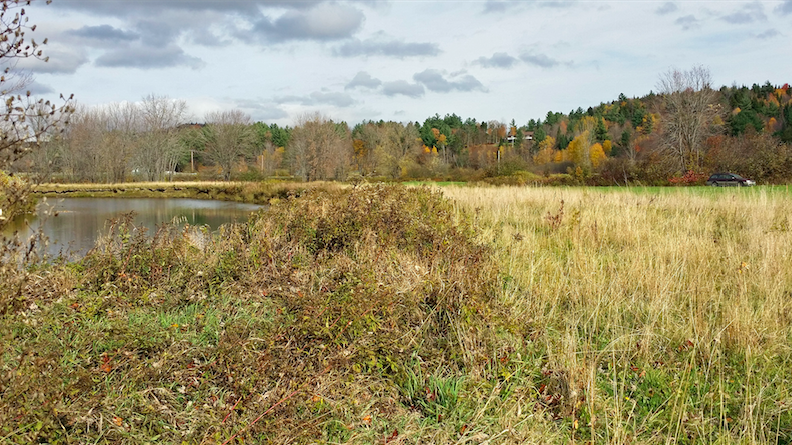TROY — Young dairy farmers Ben Moulton and Amanda Taylor worked with the Vermont Land Trust and the Department of Environmental Conservation to protect more than a mile of Missisquoi River frontage by selling conservation restrictions on 38 acres abutting the river.
The strategy employed on their farm includes protection and restoration.
The conservation restrictions create a buffer where the river can meander naturally. In addition, more than 2,300 trees and shrubs were planted along the river’s edge. This will create a section of natural vegetation that will stabilize the banks and decrease erosion while providing habitat for wildlife that lives in and near the river.
Many of the trees suffered during the drought this year, but there will be a replanting in the coming week.
This buffer area is located on a 70-acre parcel of cropland that Moulton and Taylor bought two years ago to grow more feed for their dairy herd.
Formerly part of the Judd Farm, the land was conserved with the Vermont Land Trust in 1997. The original conservation easement also protects public pedestrian access along the river, which is restricted only during hunting season.
“Amanda and Ben have been great to work with,” said Bruce Urie of the Vermont Land Trust. “This is a beautiful piece of land that grows tremendous crops. It serves as a spillway for the Missisquoi River during high rain events, so that the water can slow down and lose momentum before it flows through the town of Troy.”
The couple milks 60 cows at their home farm just down the road, and have been certified organic for close to 10 years. Moulton works closely with USDA Natural Resources Conservation Service (NRCS) and knew that selling heightened protections along the river would allow his farm to comply with water quality standards.
“This project makes it possible for the next generation to be able to have the use of the land,” said Moulton. “We’re using funds from selling conservation restrictions to contribute towards water-quality improvements on our home farm.”
With funding from NRCS, the couple has enclosed a barnyard with a cement base, installed two manure pits and added gravel to roads leading to the paddocks. These infrastructure additions will help improve local water quality.



Thank you, Ben and Amanda! It is very heartwarming and encouraging to know there are people such as yourselves to selflessly contribute to conservation!
Thank you, nice read.